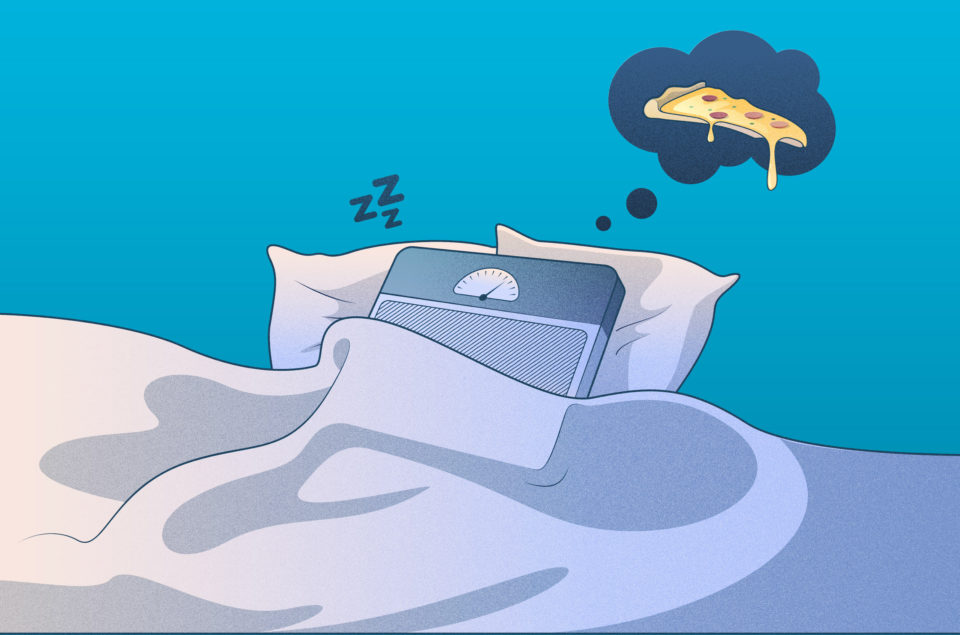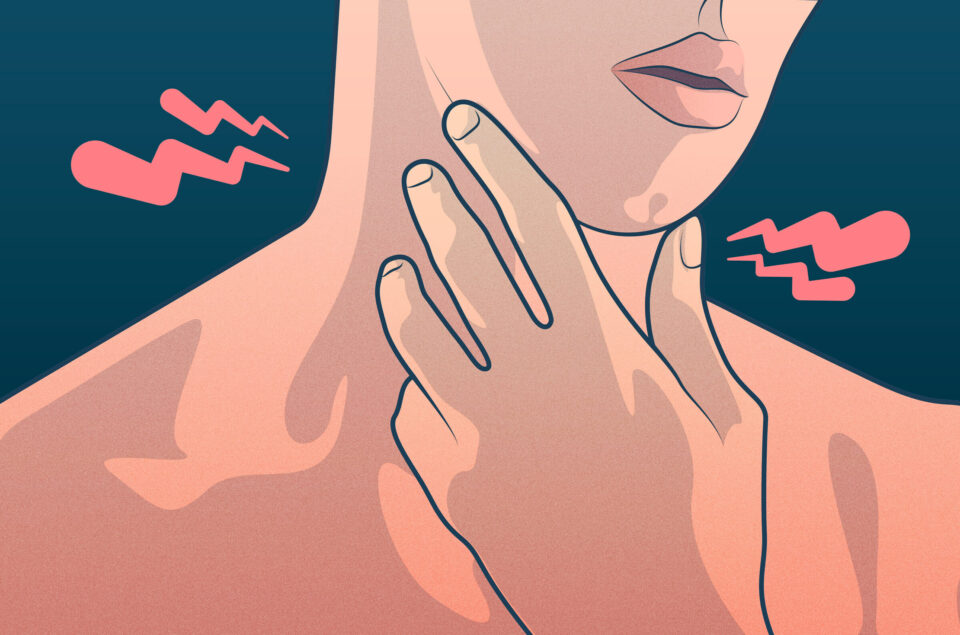Are you tired of tossing and turning all night, unable to find the perfect temperature for a restful slumber during the summer? Indeed, finding the ideal temperature for sleeping is crucial for ensuring a good night’s rest. Sleep experts suggest that maintaining a cool and comfortable sleep environment can enhance sleep quality and promote overall well-being. For those fortunate enough to have air conditioning (AC), this aspect is somewhat resolved. However, the question still remains: what exactly is the best AC temperature for sleeping?
In this comprehensive guide, we will explore the science behind sleep temperature and practical tips for adjusting your AC settings for an optimal sleep environment. So, grab your pj’s and get ready to dive into the realm of ideal sleep temperatures!
Best AC Temperature for Sleeping: The Sweet Spot
When it comes to determining the best AC temperature for sleeping, striking the right balance is key. It’s essential to create an environment that is neither too hot nor too cold, as extreme temperatures can disrupt sleep patterns and leave you feeling groggy and fatigued in the morning. Science suggests a temperature range of 60 to 67 degrees Fahrenheit (15.6 to 19.4 degrees Celsius) for optimal sleep. However, it’s important to note that individual preferences may vary. This temperature range helps facilitate the natural cooling of your body, enabling you to fall asleep faster and stay asleep throughout the night.
The best tip we can give is to start with the recommended temperature range and gradually adjust it to find what works best for you. Pay attention to how your body feels during and after sleep to determine if any modifications are needed.
Effects of sleeping in different temperature conditions
Sleeping in temperatures outside the recommended range can have various effects on your sleep quality and overall well-being.
- High Temperatures: Sleeping in a room that is too warm can lead to discomfort, excessive sweating, and restlessness. It can also disrupt the natural cooling process of your body, making it harder to fall asleep and stay asleep.
- Low Temperatures: On the other hand, sleeping in a room that is too cold can cause shivering, muscle stiffness, and difficulty in maintaining a comfortable sleeping position. Cold temperatures can also lead to poor circulation, potentially affecting the quality of your sleep. Moreover, an excessively cool bedroom can dampen your body’s cortisol awakening response (CAR). This biological process occurs during the early morning hours when your body produces peak levels of cortisol, which is a hormone that helps you transition from sleep to wakefulness.
If your room is too chilly in the morning, your body may not warm up enough to produce an adequate amount of cortisol, making it more difficult for you to wake up and start your day. Consequently, you may find yourself lingering in bed or feeling groggier than usual.
Finding the right balance and maintaining an optimal sleeping temperature is essential for experiencing restful sleep and waking up feeling refreshed.
The Science of Sleep Temperature: Understanding the Relationship between Temperature and Sleep Quality
As evening approaches, our body’s core temperature begins to decline in alignment with our circadian rhythm. Creating an environment that supports this natural decline can promote the onset of sleep and improve sleep efficiency. Cooling down the bedroom helps initiate this process, enabling you to fall asleep faster and experience deeper, more restorative sleep cycles.
This decline in body temperature is closely associated with the onset of darkness and the natural release of melatonin, which induces feelings of relaxation and tiredness. The decrease in body temperature is triggered during this time.
Throughout the sleep cycle, particularly in the initial stages (N1 and N2), our body temperature continues to decrease until it reaches its lowest point. However, external temperatures can interfere with this natural process. As mentioned, the surrounding environment is excessively warm, it can cause our body temperature to rise, leading to disturbances in our sleep. This can result in difficulties falling asleep or staying asleep, ultimately impacting the overall quality of our sleep experience.
The factors affecting sleep temperature preferences
While the recommended range provides a starting point, it’s important to consider various factors that can impact your individual sleep temperature preferences and come into play when determining the best AC temperature for sleeping. These factors include:
- Mattress and bedding: The type of mattress and bedding you use can affect your body’s heat retention and dissipation. Memory foam mattresses, for instance, tend to retain more heat, which might necessitate a lower AC temperature for optimal comfort.
- Personal metabolism: Each person has a unique metabolism that affects their body’s ability to regulate temperature. Some individuals naturally run warmer or colder, influencing their sleep temperature preferences.
- Individual health conditions: Certain health conditions, such as night sweats or hormonal imbalances, can affect your body’s temperature regulation. Consulting with a healthcare professional can provide insights into how these conditions can influence your ideal sleeping temperature.
- Sleeping attire: The clothing you wear to bed can impact your thermal comfort. Light and breathable fabrics promote better temperature regulation and allow for more restful sleep. So for example, breathable fabrics like cotton or bamboo can help dissipate heat and keep you cool, while heavier materials like flannel or fleece can provide warmth in colder conditions.
- Bedroom ventilation and natural light: Good air quality contributes to a better sleeping atmosphere and better natural temperature regulation. However, the sunlight that the bedroom gets throughout the day will also determine the night temperature: more sun, more heat and more need to reduce the temperature of the AC. If your room gets a lot of sun in summer, open the windows for optimal air circulation but lower the blinds or draw the curtains to prevent the sun from entering directly.
- Partner’s preferences: Everyone has different temperature preferences when it comes to sleep. Some people tend to sleep better in cooler temperatures, while others prefer a slightly warmer environment. Experimenting with different temperatures will help you identify what works best for you.
- External climate: It’s obvious – the climate in which you live can greatly influence the temperature settings for your AC. In hotter regions, a lower temperature might be necessary to counter the external heat, while in cooler areas, a moderate temperature may suffice.
- Sleep habits and bedtime routine: certain activities can have an impact on your body temperature before sleep. For instance, engaging in exercise close to bedtime or consuming heavy and spicy meals can elevate your body temperature, making it challenging to fall asleep. Conversely, taking a warm shower before bed can promote a sense of relaxation and freshness when you’re in bed, as your body adjusts to a cooler temperature.
Tips for Maintaining Energy Efficiency while Sleeping with the AC on
While it’s essential to create a comfortable sleeping environment, it’s also crucial to consider energy efficiency. Here are a few tips to help you achieve both:
- Set the temperature wisely: Adjust your AC to a temperature that provides comfort without excessive cooling. Setting it too low can lead to unnecessary energy consumption.
- Use a programmable thermostat: Invest in a programmable thermostat that allows you to schedule temperature adjustments throughout the night. This way, you can ensure energy efficiency by setting the AC to operate at lower levels when you’re likely to be in a deeper sleep. Many modern AC units come equipped with a sleep mode feature that gradually adjusts the temperature overnight, saving energy without compromising comfort.
- Improve insulation: Properly insulating your sleeping area can prevent cool air from escaping, helping to maintain a comfortable temperature without overworking the AC. Identify and seal any gaps or leaks around windows, doors, and electrical outlets to prevent cool air from escaping.
- Clean or replace filters: Regularly cleaning or replacing your AC filters ensures optimal performance, allowing the system to operate efficiently and effectively.
- Utilize ceiling fans: Ceiling fans can enhance air circulation, enabling you to set the AC temperature a few degrees higher without sacrificing comfort. In the summer, ensure the fan rotates counterclockwise to create a cooling breeze. This promotes better air circulation, maximizing the fan’s efficiency. Moreover, experiment with different fan speeds to find the optimal balance between comfort and energy savings. Higher speeds provide more cooling effect but consume more electricity.
- Choose energy-efficient bedding: Opt for breathable and moisture-wicking bedding materials, such as bamboo or organic cotton, to promote comfort without solely relying on AC cooling.
- Block external heat sources: Utilize blackout curtains or shades to block out sunlight during the day, preventing unnecessary heat gain that can burden the AC system.
- Use smart lighting: Replace traditional incandescent bulbs with energy-efficient LED bulbs that produce less heat, keeping your bedroom cooler.
Mastering Sleep Comfort: Unveiling the Best AC Temperature for Sleeping
Achieving optimal sleep quality and comfort this summer is within your grasp when you find the best AC temperature for sleeping. By striking the perfect balance between coolness, darkness and silence, you can create a sleep environment that lulls you into deep and restorative slumber. So bid farewell to restless nights and embrace the magic of a well-regulated sleep sanctuary. Sweet dreams await as you embark on your journey to find the ideal AC temperature for a blissful night’s sleep.
Summary FAQs
1. What is the best AC temperature for sleeping?
The National Sleep Foundation recommends a temperature range of 60 to 67 degrees Fahrenheit (15.6 to 19.4 degrees Celsius) for optimal sleep. However, individual preferences may vary, and it’s crucial to find the temperature that suits you best.
2. Is it bad to sleep with the AC on?
Sleeping with the AC on is not inherently bad. In fact, it can create a comfortable sleeping environment that promotes better sleep. However, it’s essential to consider factors such as temperature preferences, external climate, and energy efficiency when using AC during sleep.
3. Can sleeping in a cold room make you sick?
Sleeping in a cold room itself does not make you sick. However, exposure to cold temperatures for an extended period can lower your immune system’s defenses, making you more susceptible to viruses. It’s important to maintain a comfortable temperature and dress appropriately for sleep.
4. Can sleeping with the AC on cause dry skin?
Sleeping with the AC on can potentially reduce humidity levels in the room, which may contribute to dry skin. Using a humidifier or applying moisturizer before bed can help alleviate any dryness.
5. How can I balance energy efficiency and sleeping comfort with the AC on?
To balance energy efficiency and sleeping comfort with the AC on, use a timer to adjust the temperature during sleeping hours, ensure proper insulation in your bedroom, and schedule regular maintenance for your AC system. These measures can help conserve energy while keeping you comfortable during sleep.










